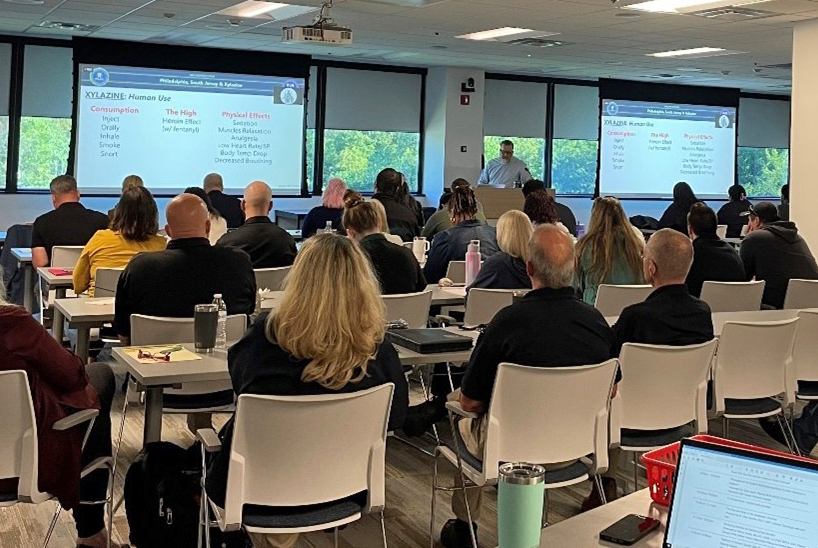
More than 160 people, many representing the first responder community, attended the Chester County Coroner’s Office xylazine training event.
The Chester County Coroner’s Office hosted Xylazine: Arrival, Trends & Effects of this Prevalent Drug, its first-ever continuing education training seminar/webinar, on Friday, September 15.
Xylazine is a large animal sedative used as an adulterant in illicit drug mixtures, commonly combined with fentanyl, and is referred to as “Tranq.” The U.S. Food and Drug Administration has approved it for veterinary use only as there are no known uses for human consumption. Xylazine causes tissue necrosis (tissue death) in all body areas, not just at the injection site, leading to sepsis and sometimes amputation, ultimately leading to death.
Over 160 people attended the training in person or virtually. They included staff from the Chester County Coroner’s Office/Medical Examiner’s Office, Department of Emergency Services and Department of Human Services, law enforcement officers, first responders, rehabilitation professionals, and others. Speakers from the FBI, the Chester County Department of Drug & Alcohol Services (D&A), the Coroner’s Office, and others discussed how xylazine has infiltrated the illicit drug scene across the country – including in Chester County – its devastating effects on the human body, and treatment options.
Chester County Coroner Sophia Garcia-Jackson said, “I see the success of this first training as a catalyst for more in the future. Collaboration is key for public outreach, providing awareness, treatment, and prevention. I look forward to hosting more educational trainings to benefit the residents of Chester County and beyond.”
Chester County‘s first xylazine death was identified on January 1, 2019. Since then, the Coroner’s Office has tracked xylazine in suspected drug-related deaths and reported statistics to the Pennsylvania Department of Health, the Chester County District Attorney‘s Office, and OverdoseFreePA, and actively partners with Chester County’s Overdose Prevention Task Force.
Because xylazine is not an opioid, naloxone/Narcan cannot reverse the effects of this powerful sedative, which causes central nervous system depression. However, Narcan is encouraged to be used in drug overdoses – even when xylazine is suspected – to provide life-saving measures.
Studies have shown human intoxication of xylazine has been around for several decades but became more prevalent in the mid-2010’s in Philadelphia. And while Chester County does not border Philadelphia, the number of xylazine deaths is similar. In 2022, data showed that 32% of all accidental drug-related deaths were related to xylazine.
This year, the Coroner’s Office entered into an inter-agency agreement with D&A to use grant money to upgrade basic toxicology testing to expanded toxicology testing, which will include testing for xylazine in all drug-related deaths. The agreement will continue into 2024 to ensure statistical tracking can keep up with the trends.
As more data is gathered, tested, and presented, the expectation is xylazine and other large animal tranquilizers in the same class will be permanently scheduled by the DEA as controlled substances.






